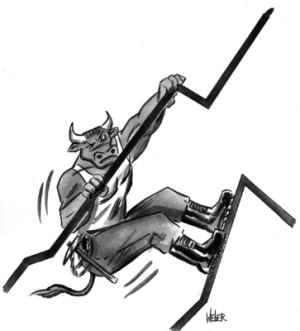- MENU
- HOME
- SEARCH
- WORLD
- MAIN
- AFRICA
- ASIA
- BALKANS
- EUROPE
- LATIN AMERICA
- MIDDLE EAST
- United Kingdom
- United States
- Argentina
- Australia
- Austria
- Benelux
- Brazil
- Canada
- China
- France
- Germany
- Greece
- Hungary
- India
- Indonesia
- Ireland
- Israel
- Italy
- Japan
- Korea
- Mexico
- New Zealand
- Pakistan
- Philippines
- Poland
- Russia
- South Africa
- Spain
- Taiwan
- Turkey
- USA
- BUSINESS
- WEALTH
- STOCKS
- TECH
- HEALTH
- LIFESTYLE
- ENTERTAINMENT
- SPORTS
- RSS
- iHaveNet.com
By Katy Marquardt

For mutual fund investors, there's no shortage of best mutual funds rankings floating around.
Often, these roundups highlight the best fund managers in a range of styles from different fund companies. That can be helpful for investors who cherry-pick funds from various fund families, but what about those who buy most (or all) of their funds under one roof, either for simplicity's sake or because their 401(k) offers a limited menu?
In a recent survey, more than 3,000 financial advisers weighed in with their picks of the top fund families.
Their criteria included consistency, ethics, trustworthiness, sophistication, and social consciousness. The highest-ranked mutual
fund companies in the survey -- commissioned by Horsesmouth, an online adviser community and kasina, a financial services consulting
firm -- were
But since straight rankings reveal only so much, We asked a handful of financial advisers which fund families they favor and why.
Groupthink.
Much has been said about the team-management approach used by the
It works like this: Money invested in each fund gets divvied up into smaller portions and is managed independently by separate "portfolio counselors" with different investment styles and areas of expertise. One portion of the fund -- typically 25 to 30 percent -- is managed by a team of analysts. A principal investment officer and a committee oversee and monitor each fund.
Not all advisers like the committee
approach, but Kay Lynn Mayhue, a financial planner with the
"I like their team-management approach from a turnover standpoint. Consider if you owned a fund and the manager left --
the portfolio strategy may be lost," she says. It's worth noting, she adds, that no one fund family excels in every category.
"There are asset classes where they're a little weak or don't have exposure, but overall, I call them [
Cutting-edge.
According to kasina, advisers viewed the iShares family of exchange-traded funds as "exceptionally innovative."
ETFs, which came on the investing scene in the early '90s and have exploded in popularity during the past few years, look like index mutual funds but trade on exchanges like stocks. And they're gaining quite a following among financial advisers because they are -- by design -- cheaper, more tax efficient, and less cumbersome than mutual funds.
Another plus: Unlike mutual funds, which execute orders at the end of the trading day, ETFs can be bought or sold at any point during the day. Mickey Cargile, managing partner of WNB Private Client Services in Midland, Texas, says he uses them in client portfolios because they're easy to buy and sell. "It's certainly the wave of the future . . . being able to trade all day long," he says.
Best in class.
"They've built themselves a think tank in terms of what's happening with the economy, recession, inflation, and interest rates," he says. "They've been good to us over the years in terms of managing the economy."
Among smaller fund families, Rogé is a fan of Milwaukee-based
Slow and steady.
In an age where "people are looking to protect what they have left," says Mayhue, predictability and security have become a
top priority for investors -- especially those nearing retirement age. For that group, Rogé likes the
"They have some funds that have held up pretty well over the past year or so, and they tend to be little more conservative with almost everything they do," he says. His favorites include the T. Rowe Price Capital Appreciation fund and the T. Rowe Price New Era fund, which he calls "the chicken's way of playing commodities."
Here are the top 10 fund brands, as rated by financial intermediaries in the Horsesmouth and kasina survey:
- 1.
American Funds - 2. iShares/
Barclays - 3.
Ivy Funds - 4. PIMCO/Allianz Funds
- 5.
Vanguard Group - 6. Franklin Templeton Investments
- 7.
BlackRock - 8.
Fidelity/Fidelity Advisors - 9. JPMorgan Asset Management
- 10. Natixis Funds
© U.S. News & World Report
WORLD | AFRICA | ASIA | EUROPE | LATIN AMERICA | MIDDLE EAST | UNITED STATES | ECONOMICS | EDUCATION | ENVIRONMENT | FOREIGN POLICY | POLITICS
Best Mutual Fund Families: Which brands financial advisers favor and why